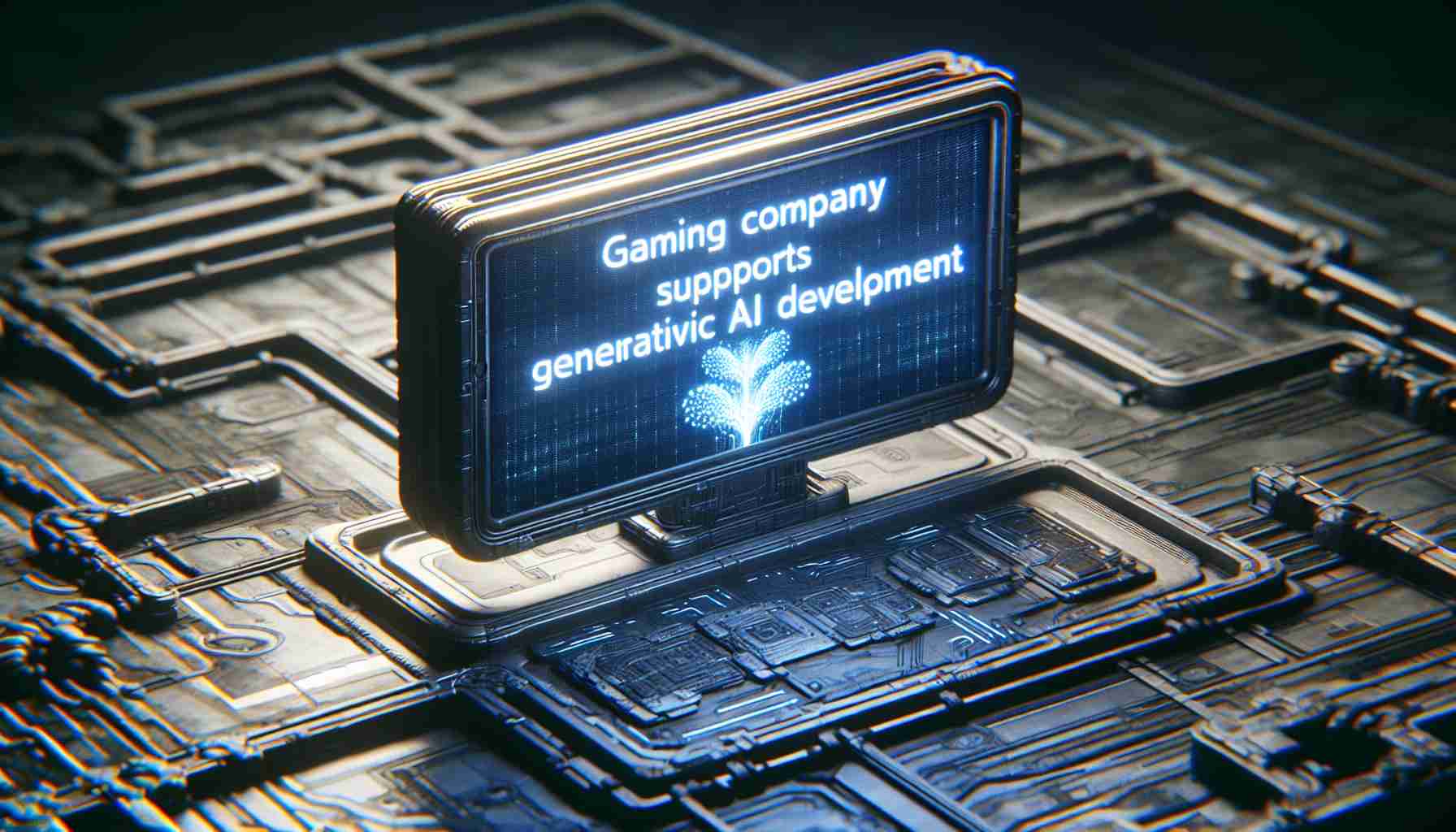Valve has recently announced that Steam will now permit games created with the assistance of generative AI tools, as long as the use of AI is disclosed by the developers. This move opens up new possibilities for game developers and the gaming community. While there may be concerns surrounding the ethical implications of generative AI, the potential for innovation and creativity cannot be underestimated.
According to a survey conducted by the Game Developers Conference, it was found that 31% of the 3,000 respondents personally use generative AI in their work, while 18% revealed that their colleagues in the workplace utilize it. This means that 49% of game studios are incorporating generative AI in some capacity, albeit not always in ways that are directly perceptible to players.
Generative AI tools have sparked controversy, particularly when used to generate artwork, writing, and voices that players directly experience. Some game developers have faced criticism for relying on AI-generated assets, such as in the case of the upcoming Square Enix game, Foamstars, which utilized AI assistance for a small portion of its content. Similarly, the use of generative AI in the creation of voice lines in The Finals has drawn backlash.
Nevertheless, generative AI extends beyond visible and audible aspects of games. It can be utilized to generate code snippets, automate repetitive tasks, and expedite content creation. The survey organizers noted that developers expressed interest in coding assistance and finding ways to enhance the content creation process.
Interestingly, it was revealed that generative AI is most commonly used in finance, marketing, PR, production, and management, rather than in narrative, art, audio, and QA departments. This suggests that the technology is playing a significant role in several key aspects of the games industry.
Despite its evident popularity, the survey also highlighted concerns surrounding the ethics of using generative AI. A substantial percentage of respondents expressed worry about the potential job displacement resulting from the technology. There were calls for its responsible and ethical implementation, with some developers suggesting that it should be used to enhance capabilities rather than replace human workers. Others emphasized the need for regulations to address copyright and ethical concerns.
In parallel with the rise of generative AI, interest in other controversial technologies such as NFTs and cryptocurrency appears to be declining. Fewer developers expressed enthusiasm for these technologies in this year’s GDC survey, indicating changing trends in the gaming industry.
Valve’s decision to embrace games developed with generative AI marks an exciting turning point for the industry. As long as developers remain transparent about their use of AI, it is likely that we will witness a surge in creative and innovative game experiences in the near future. However, it is essential to continue the discussion and address the ethical challenges that this technology presents, ensuring its responsible and beneficial integration into the gaming landscape.
FAQ Section:
1. What is generative AI?
Generative AI refers to the use of artificial intelligence tools and algorithms to generate content, such as artwork, writing, voices, and code snippets. It can automate repetitive tasks and expedite content creation in various fields, including game development.
2. What did Valve announce regarding generative AI and Steam?
Valve announced that Steam will now permit games created with the assistance of generative AI tools, as long as the use of AI is disclosed by the developers. This decision opens up new possibilities for game developers to incorporate generative AI in their games.
3. How many game developers use generative AI?
According to a survey conducted by the Game Developers Conference, 31% of the 3,000 respondents personally use generative AI in their work, while 18% reported that their colleagues in the workplace utilize it. This suggests that around 49% of game studios are incorporating generative AI to some extent.
4. What are the ethical concerns surrounding generative AI in games?
Generative AI has sparked controversy when used to generate artwork, writing, voices, and other aspects of games. Some developers have faced criticism for relying too much on AI-generated assets, potentially impacting the creative input of human creators. Many are concerned about potential job displacement and the need for responsible and ethical implementation of generative AI.
5. In what areas of game development is generative AI most commonly used?
The survey revealed that generative AI is most commonly used in finance, marketing, PR, production, and management departments, rather than in narrative, art, audio, and QA departments. This indicates that it is playing a significant role in several key aspects of the games industry.
Key Terms and Jargon:
– Generative AI: The use of artificial intelligence tools and algorithms to generate content.
– Steam: A digital distribution platform for video games.
– Game Developers Conference (GDC): An annual conference for video game developers.
– AI-generated assets: Content created by generative AI tools, such as artwork, writing, and voices, that are used in games.
– NFTs: Non-fungible tokens, which allow ownership of unique digital items.
– Cryptocurrency: Digital currency that uses cryptography for secure financial transactions.
Related Links:
– Steam
– Game Developers Conference
The source of the article is from the blog mgz.com.tw

